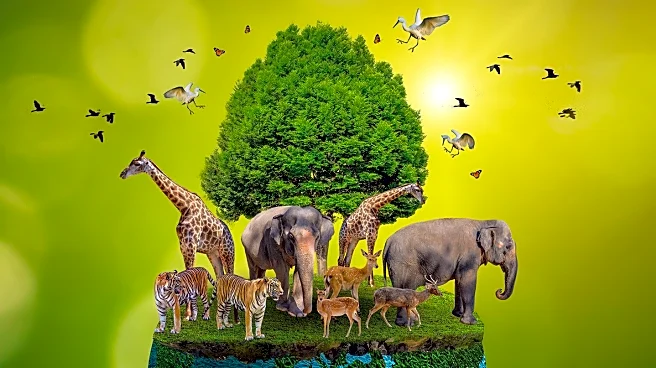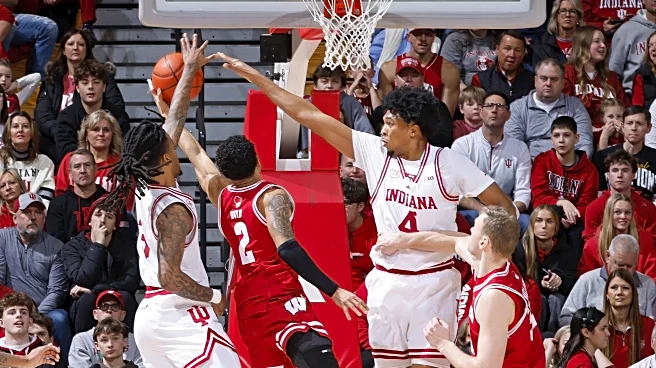What is the story about?
What's Happening?
Animal rights activists, including Bob Irwin, father of the late Steve Irwin, have condemned the actions of US influencer Mike Holston, known as 'The Real Tarzann', for wrestling wild crocodiles in Australia. The Queensland environment department is investigating Holston's videos, which show him restraining crocodiles. The maximum penalty for interfering with a saltwater crocodile is $37,500, with an on-the-spot fine of $8,345. Animal rights organizations are calling for Holston's deportation and for stricter enforcement of wildlife protection laws. The incident has sparked a broader discussion on the impact of social media influencers on wildlife conservation.
Why It's Important?
The actions of influencers like Holston highlight the challenges of wildlife conservation in the digital age. The glorification of dangerous interactions with wildlife can lead to copycat behavior, undermining conservation efforts and putting both animals and humans at risk. The call for stricter penalties and enforcement of existing laws reflects a growing concern about the influence of social media on public attitudes towards wildlife. This situation underscores the need for reform in wildlife protection laws to address the 'Steve Irwin factor gone wrong', where the legacy of wildlife education is distorted by reckless behavior.
What's Next?
The Queensland environment department is actively investigating the videos and considering strong compliance actions, including fines. Animal rights organizations are urging authorities to follow through with the investigation and hold Holston accountable. There is a push for reform in wildlife protection laws to deter harmful interactions with wildlife. The outcome of this investigation could set a precedent for how similar cases are handled in the future, potentially leading to stricter regulations and penalties for influencers who engage in dangerous wildlife interactions.
Beyond the Headlines
The incident raises ethical questions about the role of social media in wildlife conservation. It highlights the need for responsible content creation and the potential consequences of monetizing dangerous wildlife interactions. The situation also reflects broader cultural shifts in how wildlife is perceived and interacted with, emphasizing the importance of education and awareness in promoting conservation efforts.














